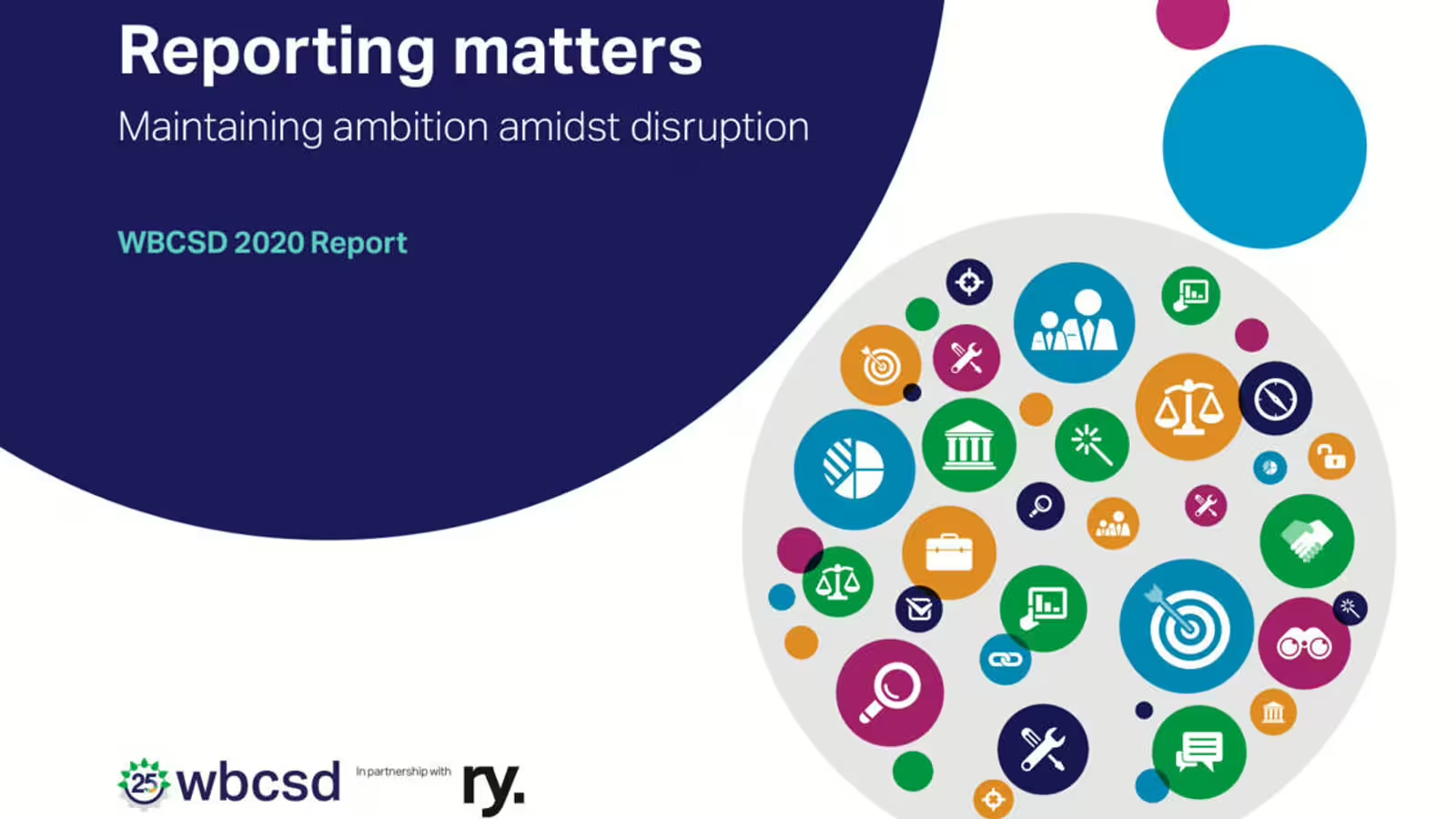Geneva/London 21 October 2020: Today, the World Business Council for Sustainable Development (WBCSD) highlights the importance of maintaining sustainability ambitions amidst unprecedented disruption in the eighth edition of Reporting matters – WBCSD’s annual review of its member companies’ sustainability and integrated reports in partnership with Radley Yeldar (RY).
This year, Reporting matters presents a focus on the acute impacts of the COVID-19 pandemic and seeks to tie it into other pressing sustainability issues, how WBCSD is responding and the role of corporate sustainability reporting in this environment.
Spanning 158 leading global companies, this year’s research shows continued progress in corporate sustainability reporting.
Key findings from this year’s research include information on:
Improvement in reporting
- 78% of member companies in our benchmark have improved their Overall scores since the baseline year 2017; 26% have improved their Materiality score.
The state of Sustainable Development Goals (SDG) reporting
- 96% of reports reviewed acknowledge the SDGs in some way; 93% prioritize specific SDGs and present some evidence of alignment and contribution.
The state of integrated reporting
- 41% of reports reviewed combine financial and non-financial information, up from 35% in 2017; 18% are self-declared integrated reports.
The state of Global Reporting Initiative (GRI) reporting
- 84% of reports reviewed reference the GRI; 78% of those claim to be in accordance with Core or Comprehensive level.
The emergence of Sustainability Accounting Standards Board (SASB)
- 28% of reports reviewed integrate SASB into the materiality assessment process or produce a separate SASB index, up from 7% of our sample in 2017; 65% of our US-headquartered sample does so.
The use of digital formats
- 15% of reports reviewed provide a digital-first experience; 81% of members with an offline-first approach produce complementary online content, up from 44% in 2017.
Peter Bakker, President and CEO of WBCSD, said: “COVID-19 has shown how fragile our systems are. It is up to all of us to build forward better as we navigate the next phase of the global pandemic, without losing sight of systemic issues lingering beneath the surface. Transformation should be supported by a sustainable financial system, and for that we need robust, comparable and transparent reporting on relevant ESG aspects so the financial system can reward the most sustainable companies and scale sustainable solutions.”
Louise Ayling, Director of Sustainability Strategy at RY, said: “Every year I am encouraged by the improvement in companies’ reporting and 2020 is no exception. COVID-19 has certainly placed more weight on its importance coupled with the momentum we’ve seen towards sustainability action as we enter this new decade and the revitalisation of companies’ sustainability strategies. The challenge now is to ensure reporting and communications ensure effectiveness and provide decision-useful information to a range of relevant stakeholders. Reporting formats, accessibility and the use of language is key.”
Going forward, it is clear that the long-term strategic thinking set out by the SDGs, WBCSD’s Vision 2050 and the broader push for more inclusive forms of capitalism are needed more than ever. Companies must be resilient and maintain their sustainability momentum to survive.
With this backdrop, Reporting matters will continue into 2021 as WBCSD and its member companies work to improve corporate reporting as we accelerate the transition to a sustainable world.
